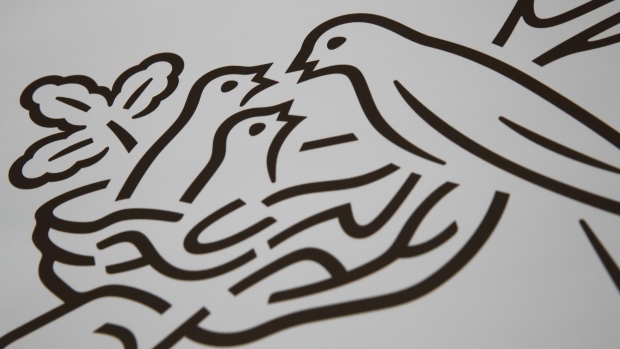Dec 4, 2022
Nestle’s Vitamins Push Tested by Cost-of-Living Squeeze
, Bloomberg News

(Bloomberg) -- Packaged-goods giants like Nestle SA and Unilever Plc have poured billions into acquisitions of vitamin brands in recent years, seeking growth beyond traditional businesses like stock cubes, ice cream and soap. The bet appeared to pay off when Covid hit, turbocharging demand for supplements as worried consumers sought to boost their defenses against a new and mysterious virus.
Over the past year, however, with the pandemic easing and a cost-of-living crisis squeezing household budgets, the vitamin business has fallen on harder times. In the US, supplement sales fell 3.3% by units in the year through October, following three consecutive years of growth, according to data provider NielsenIQ.
Nestle warned last week of a bumpy road ahead. The company’s supplement sales were flat in the first nine months of 2022, and a return to high single-digit growth isn’t expected until the second half of next year.
“Our vitamin, minerals and supplement business has seen explosive demand as we have a lot of products focusing on immunity,” said Greg Behar, chief executive officer of the health science unit, speaking at an investor meeting in Barcelona. “We see now a slight deceleration.”
The Swiss food company has spent more than $8 billion on acquisitions of brands such as Solgar and Puritan’s Pride. That’s made it the market leader in the fragmented field, with a 4% share, overtaking rivals like Reckitt Benckiser Group Plc and Procter & Gamble Co., which also have vitamins businesses. Unilever bought seven businesses since 2018, now in a division with its burgeoning luxe skincare business which has consistently brought double-digit growth.
New Areas
The dealmaking spree has come amid a broader push into new areas by the consumer giants, as they face sluggish demand for traditional food and household staples. While Nestle pet food brands like Purina have grown consistently, the group’s forays into health have been more fraught. The Swiss company last week put its Palforzia peanut-allergy treatment up for sale only two years after buying it.
“In terms of top-line growth, vitamins, minerals and supplements won’t be the next pet care or skincare,” Bernstein analyst Bruno Monteyne said.
Despite the recent setbacks, Nestle and others say there’s still plenty of potential in the business, and they’re looking beyond the current slowdown.
The US market highlights the bullish case. Some 83% of households there take vitamins, minerals and supplements, representing about half of the global market. Health-conscious American shoppers are happy researching and self-medicating to make themselves feel better -- regardless of whether there’s a real benefit or simply a placebo effect.
If people elsewhere spent anything like the $155 each American shells out annually on these products, sales growth for international brands would boom. Some supplements fetch eye-watering price: startup Lyma sells a starter kit for about £500 ($600).
‘Cultural Shift’
Seeing vitamins and supplements as an emerging and enduring global trend, Unilever has built up a €1 billion ($1 billion) health and wellbeing unit. Earlier this year, Unilever bought hair-supplement brand Nutrafol; last year it acquired Onnit, which focuses on digestive health and memory.
“There’s a massive cultural shift from health being defined by the absence of disease to health really being a lifestyle,” Jostein Solheim, CEO of the division, said in an interview.
Busy professionals like Tom Woudhuysen, a 36-year-old teacher in London, reach for supplements for peace of mind. He began taking multivitamins as a teen, later adding Korean ginseng to boost energy, lysine amino acid against ulcers and other products touted as hair-growth stimulants.
“There’s a certain comfort to the regularity and consistency of taking supplements -- a halfway house to something like a going to the doctor and getting a prescription.”
Although that makes for customer loyalty, there are also plenty of factors weighing on the business, at least in the near term.
Store Brands
The surge in demand for Vitamin D during the pandemic, fueled by unproven speculation that it could help fight Covid, has eased. The cost-of-living crisis is encouraging consumers to cut back and switch to store brands of other supplements. Some of the most popular products in the category, such as calcium supplements, aren’t patentable, which restricts profitability.
Creating new remedies is risky because of limited science demonstrating the benefits, as well as concern that the market is dependent on fads. The direct-to-consumer e-commerce model of supplement brands like Onnit and Nutrafol may not easily scale up within a massive conglomerate.
Maintaining profitability is hard when consumers focus more on price, particularly for basic additives like calcium or cod-liver oil. Britain’s Superdrug says its own-brand range grew more than 40% faster in the last 12 months than branded vitamins, minerals and supplements. Drugchain Boots and health foods store Holland & Barrett are also seeing a shift into own-brand products.
With Reckitt, Unilever, P&G, Nestle and others all hungry for supplements, acquisitions may get expensive.
At the end of Nestle’s investor presentations in Barcelona Tuesday, guests were treated to a goody bag containing collagen bars endorsed by Jennifer Aniston and Nature’s Bounty Sleep3 melatonin pills. Whether that seals the deal with investors skeptical of Nestle’s vitamins and supplement strategy remains to be seen.
--With assistance from Fareed Sahloul and Katie Linsell.
©2022 Bloomberg L.P.


